Ankara hosted the “Conference on Preserving Uyghur Identity – in the Midst of the Uyghur Genocide” on September 18, 2025, organized by the Uyghur Academy. The gathering brought together representatives of Uyghur civil society organizations, academics, activists, and youth from across the world, making it one of the largest assemblies of the Uyghur diaspora in recent years.

The program opened with the recitation of the East Turkistan National Anthem and the Turkish National Anthem. Opening remarks were delivered by Dr. Rishat Abbas, President of the Uyghur Academy; Turguncan Alavudun, President of the World Uyghur Congress (WUC); former Turkish parliamentarian Feramüz Üstün; Erkin Alptekin, one of the founding leaders of the WUC; along with other distinguished guests. The speakers emphasized China’s ongoing genocidal policies in East Turkistan and highlighted the importance of preserving Uyghur identity in the diaspora.

The first panel of the conference focused on the current situation in East Turkistan, examining the ongoing genocide, threats to Uyghur identity, and cultural destruction. The session was chaired by Rushan Abbas, Executive Director of Campaign for Uyghurs and Executive Chairman of the World Uyghur Congress. Panelists included Turguncan Alavudun, President of the World Uyghur Congress; Rahime Mahmut, Director of the WUC London Office and President of the Stop Genocide Association; Prof. Dr. Alimcan Inayet from Ege University; Prof. Dr. Ömer Kul from Istanbul University; and Assoc. Prof. Dr. Ekber Bawudun from Kyrgyzstan. They provided an in-depth assessment of the human rights violations in East Turkistan and discussed the critical importance of maintaining Uyghur identity under these circumstances.

The second panel explored the challenges and opportunities for preserving Uyghur identity in the diaspora. Chaired by Dr. Mamatimin Abbas from France, the session featured Dr. Gülzade Tanrıdağlı from Mimar Sinan Fine Arts University in Turkey, Dr. Rakhmatzhan Yusupov from Kazakhstan, Farkhat Ibragimov from Kyrgyzstan, the Uyghur publisher Abdulcelil Turan from Turkey, and Mominjan Rehman from Norway. The panelists discussed the obstacles Uyghurs face in retaining their identity abroad, shared successful strategies, and emphasized the importance of building international networks of solidarity.

The third panel examined the role of collaboration among Uyghur organizations in preserving identity. Chaired by Abdulhamit Karahan, Vice President of the Uyghur Academy and President of the Uyghur Academy Foundation, the panel included Abdureshit Abdulhamit (Turkey), Elfidar Iltebir, President of the Uyghur American Association (USA), Dr. Abdulkerim Buğra, President of the East Turkistan Studies Center (Turkey), Musa Er (Turkey), and Hasan Abliz (Turkey). Participants underlined that unified action among Uyghur civil society organizations is essential for the strength and resilience of the diaspora community.

The fourth panel addressed the importance of the mother tongue in preserving Uyghur identity and explored methodologies for Uyghur language teaching. Chaired by Prof. Dr. Alimcan Inayet, panelists Dr. Mahmut Can Özuygur, Rena Karahan, and Abdurishit Niyaz emphasized the central role of language in transmitting cultural and national identity to younger generations. They discussed curriculum development, innovative teaching methods, and ways to ensure that the Uyghur language remains a living, vibrant part of community life.

The fifth panel focused on the role of Uyghur youth in safeguarding identity within the diaspora. Chaired by Dr. Barat Achinuq from the USA, panelists included Abdumuktedir Udun (Canada), Ehmetjan Kasim (Netherlands), Maide Muhter (Sweden), Dolunay Tanrıdağlı (Turkey), and Zuleyha Uygur (Turkey). They shared experiences of engagement and activism, highlighting how young people contribute to cultural preservation, community mobilization, and advocacy efforts on the international stage.

The sixth panel discussed the role of religion in the preservation of Uyghur identity. Chaired by Dr. Memet Emin (USA), speakers included Prof. Dr. Ataullah Şahyar from Marmara University, Assoc. Prof. Dr. Alimcan Buğda, President of the East Turkistan Scholars Association (Turkey), Mehmut Emin Damolla from the East Turkistan Federation (Turkey), community leader Muhammat Yusuf (Turkey), and Abdulhakim Idris, President of the Uyghur Research Center (USA). They examined the historical, cultural, and spiritual dimensions of Islam in shaping Uyghur identity and sustaining community cohesion.

The seventh and final panel focused on the role of media in preserving Uyghur identity in the diaspora. Chaired by Dr. Abduxukur Abdurexit from Switzerland, panelists included Prof. Dr. Erkin Emet from Ankara University, Dr. Abdurahim Devlet (Turkey), Abdulaziz Akhun (TRT, Turkey), Iptihar Tanrıkut (Germany), and Bahtiyar Ömer (Norway). They explored how media coverage, social platforms, and storytelling can enhance visibility of Uyghur culture and struggles, strengthen diaspora connections, and influence international awareness.

The conference concluded with closing remarks by Erkin Alptekin, founding leader of the World Uyghur Congress; Ekbercan Bawudun, a Uyghur community leader from Kyrgyzstan; and Dr. Rishat Abbas, President of the Uyghur Academy. Participants emphasized that the conference made a significant contribution to international solidarity in protecting Uyghur identity amid ongoing genocide.

Following the event, Abdulhamit Karahan, Vice President of the Uyghur Academy and President of the Uyghur Academy Foundation, told Uyghur Haber that the meeting was a turning point for the Uyghur diaspora. “This conference not only highlighted the challenges of preserving Uyghur identity but also demonstrated the necessity of acting together. Academics, civil society leaders, and youth from different parts of the world came together at one table. This diversity shows the global scope of our struggle and the power of solidarity,” he said.

Karahan added: “Our aim was to strengthen the identity struggle of the Uyghur people while genocide continues. The discussions on language, culture, religion, youth, and media will guide our strategies. The active participation of young people has increased our hopes for the future. We believe the ideas and decisions emerging here will pave the way for stronger collaborations ahead. This meeting has proven that the Uyghur diaspora is united and determined to preserve its identity.”
Source: Uyghur Haber

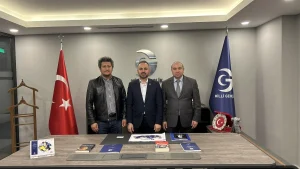
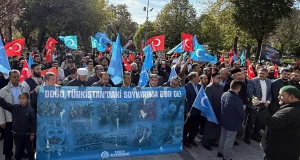
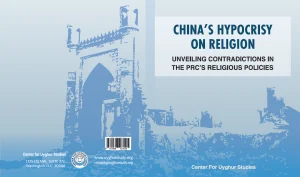
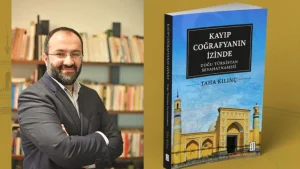

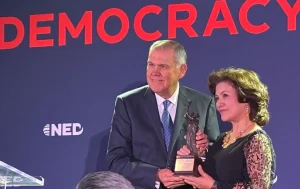
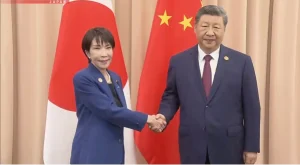
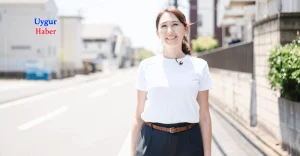
Be First to Comment